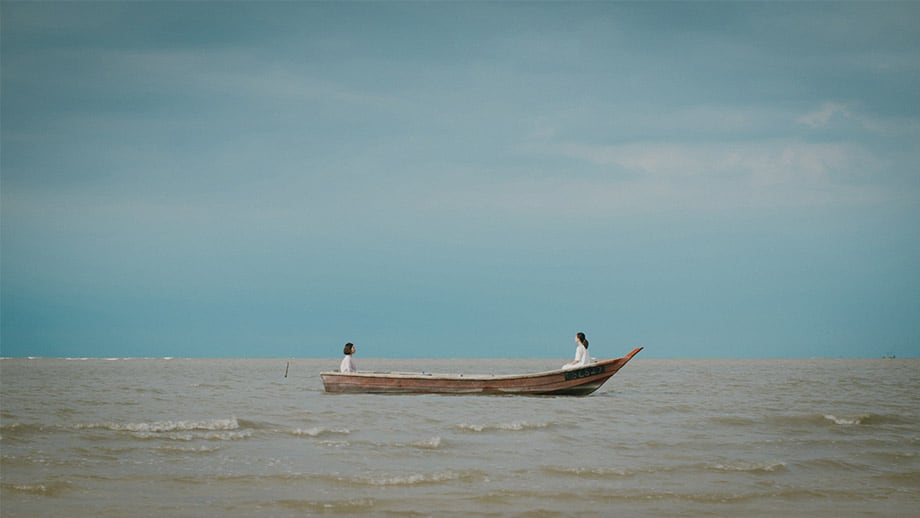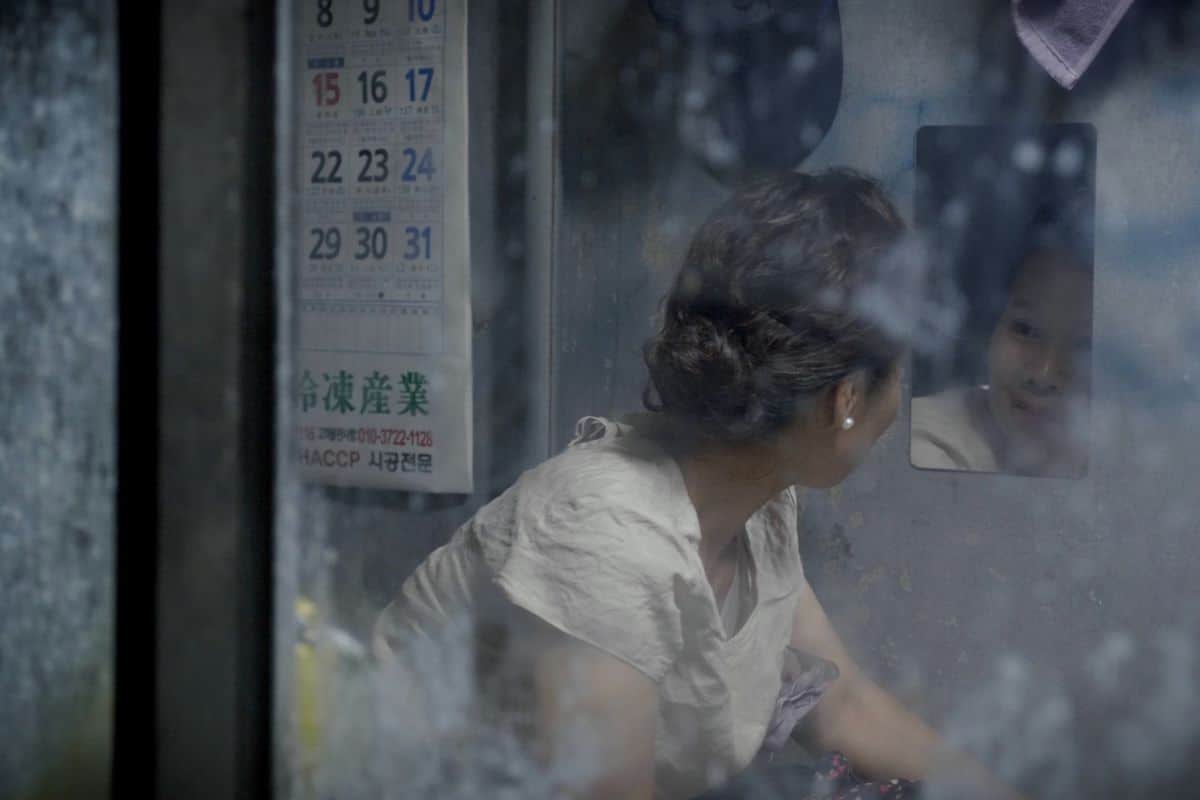In my trip into Bhutanese cinema, courtesy of Five Flavours, I had yet to watch a film that takes place in an urban environment, since “Norbu” and “Prophecy” are set in (remote) mountainous environments. “In A Defiled World” fills that gap as its story is set in the capital city of Bhutan, Thimpu, and at the same time, introduced me to one of the most significant individuals in the local film industry, Lhaki Dolma.
“In A Defiled World” is screening at Five Flavours, that will be on in Warsaw November 15-22.
The film revolves around Mendrel, a woman who inherits a construction company from her uncle, becoming the boss in a country that does not seem very comfortable with women having such roles. A little before that though, as she was visiting her hometown, she met Tenzin, an honest and straightforward egg seller, who proposed to her immediately, causing her much delight. Through a series of unfortunate (for him) events, he ends up working as her chauffeur, and at the same time, trying to save her from Penjore, a very handsome man with a gambling issue, who has just abandoned Phub, a singer in a night club, after leaving her pregnant, in order to court Mendrel. Amidst all these characters, Gangza, a loan shark, ends up playing a significant part in all the aforementioned lives, particularly because Penjore owes him a huge amount of money.
Through this intricate and at times a bit hyperbolic story, Wangchuk makes a number of comments regarding the modern Bhutanese society. The place of women, most of which are completely depended on men, as their sole purpose seems to be to get married (Phub) is one of the central ones, despite the fact that Mendrel presents a completely different take on the subject. Usury and the consequences for the people who choose to get their money that way (Penjore), as much as the despicability of the loan sharks themselves (Gangza), is another one. Gambling, lying, and womanizing and the troubles resulting from it (Penjore), as much as the rewards of the ones who abstain from such temptations (Tenzin), comprise the last one.
All of the above, however, are presented through a prism that seems to suggest that the pious are the ones who will “win” at the end, while the “sinners” will be punished eventually, in a rather religious approach to social issues, which seems to be a characteristic of Bhutanese cinema. Through that prism, Wangchuk seems to say that change may be inevitable, and one should actually embrace it, but without losing sight of the traditional values, deriving from Buddhism.
Wangchuk draws heavily from Lhaki Dolma’s charisma, letting her shine as Mendrel in a number of different situations and statuses, ranging from very happy to very sad. In the latter aspect, I found her acting a bit hyperbolic, but in general, she delivers to the fullest in a role that seems tailored for her. Sonam Tenzin plays the playboy to perfection, as Penjore, Tshering Phuntsho is equally convincing in the opposite role as Tenzin, while Sherab Lhamo as Phub is great in her transformation. The one who steals the show though, is Gyem Dorji in the role of the loan-shark, who portrays the villain impressively, being cunning and ruthless, almost constantly.
Talop Wagchuk and Chencho Dorji’s editing is a bit hasty at times, but retains a nice enough pace, and Chencho Dorji’s cinematography portrays both the urban and the bucolic setting with realism.
“In A Defiled World” has a number of merits, and definitely deserves a watch, but its single-minded approach towards social issue will probably make it a bit difficult to relate to, particularly for western audiences.
















